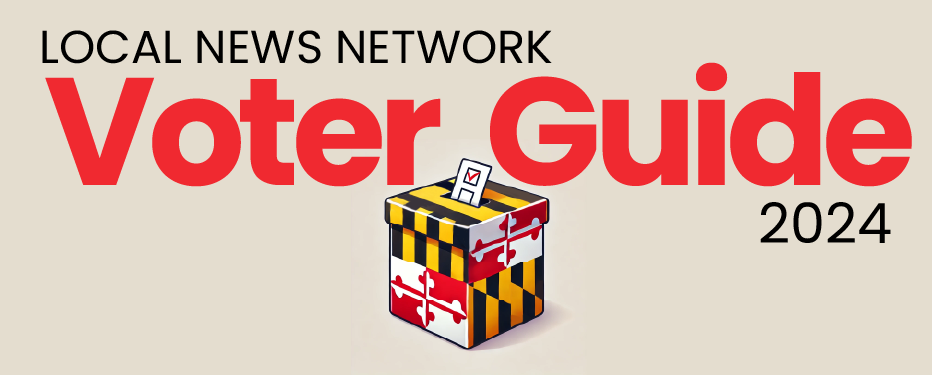Andrea Chamblee
Running for school board in Howard County District 5
How old will you be on Election Day (Nov. 5)?
63
Are you currently employed? If so, where, and what is your job title?
Associate adjunct professor, the George Washington School of Medicine and Public Health.
What is the highest level of education that you completed, and where did you get that degree?
University of Maryland School of Law. Admitted to the Bar Associations of Maryland and the District of Columbia.
Why are you running for the school board?
As a leading gun safety activist in Maryland, I have cultivated relationships at all levels of county and state government. I’ve proven myself to be effective, as evidenced by my lengthy track record of meaningful legislative victories. As a Board of Education member, I will apply my advocacy expertise to doggedly pursue solutions locally and statewide to assure we maintain academic excellence in an environment that is safe, inclusive and attractive for students, teachers and staff. Students who aren’t well can’t learn well. Students who don’t feel safe can’t learn. We experienced horrific gun violence in District 5, including a murder-suicide this year and a lockdown before that. Students are afraid to walk to school, whether it’s from bullying or unsafe infrastructure like traffic and buses. They feel unsafe and unvalued when they get there. We don’t make them safer by turning these schools into bunkers and interrupting lessons with shooter drills, redirecting money that should go to remediating dangerous radon and mold, fixing lighting, and keeping their class sizes manageable. There’s no evidence that the militarization of schools does anything to increase safety, but there’s lots of evidence that it increases distractions and anxiety. I am the champion for the safety of students and staff.
What makes you a good candidate for the board?
I am deeply passionate about public service and public safety. My entire adult life has been devoted to both. When I began teaching graduate courses 25 years ago, I discovered I had a passion for teaching too, so I never stopped. Howard County is my hometown, and it has given a lot to me over the years. I would be so proud and honored to give back as a member of the Howard County Public School System Board of Education — but more importantly, I have skills that this board needs. I have professional expertise in the areas of contract scrutiny and vendor accountability, and I have been trained to anticipate and consider the potential consequences of making changes to complex systems. For my entire career with the Food and Drug Administration, I balanced the priorities of the government, the American consumer and a variety of small and large businesses. I have extensive experience with legislation and policy that will translate well to the Board of Education. I have also volunteered as a liaison for teens studying abroad, to teach them how to address problems in communication and agreements with host families on the expectations of families and hosted students. I volunteered with the County Court to negotiate between parties in cases headed for court so they could define their own terms of the settlements they sought.
Families know that they can trust me to prioritize safety in all the forms it takes. And educators know that I value and support them for the unsung heroes that they are.
What is the most important issue facing your school board and what would you do about it if elected?
The board must advocate to the county and state for new revenue streams for our schools. This endless budget crisis coupled with deferred maintenance is an unsustainable, self-inflicted wound. The reserve fund we have raided the past few years is not some extra “bonus” fund; it is money to pay for salaries and obligations that are billed for the five-to-seven weeks before the end of the fiscal year that become due in the next fiscal year. We don’t have enough revenue streams. The county knows it, and our delegation in Annapolis knows it. A bill introduced to get funds from new development is a good start, but we need to keep looking
I expect the superintendent to identify any/all areas where money is being spent unwisely. This year, the superintendent has proposed cutting nearly 350 positions across the school system. I would be prioritizing the classrooms over everything else. Budget decisions should never result in anything that would undermine Howard County Public School System’s ability to offer a high quality education to students. Cutting school-based staff and increasing class sizes are examples of things that undermine education. I expect to see a recommended FY26 budget with sensible, realistic reallocations that only propose cuts that won't negatively impact the classrooms. Related to this, we need a policy requiring performance reviews for all management. The board should make the superintendent’s contract contingent on meeting clearly defined expectations, including the budget, for example, and for getting the special education department off of Maryland State Department of Education probation.
Please name a public leader you admire and explain why.
I admire former state Sen. Charles “Mac” Mathias, because without his tireless work to support the Chesapeake Bay, one of our state’s most precious resources, the marine environment in Maryland would have died. His work with the surrounding states who were dumping into the top of the bay and our watershed were tireless and effective, and the bay continues to be an economic engine and endless source of recreation for our state in large part because he championed this issue. I also admire our entire Howard County delegation representing us in Annapolis for their effectiveness in championing issues across party lines that improve the environment, gun safety, education and health care in our state. I am proud to have earned their endorsement and look forward to continuing working with them for our schools.
The Blueprint for Maryland’s Future, passed by the General Assembly in 2021, is a 10-year plan that includes increased education funding to support early childhood education, increased teacher starting pay, college/career-readiness standards for high school graduates, and expanded services to multilingual and impoverished families, among other goals. Please tell us your views on the Blueprint and how it will affect your school district.
Society as a whole benefits from expanded pre-kindergarten. Minimum starting salaries for new teachers should have been mandated a long time ago. We need to improve hiring and retention for teachers. Our county’s special education program is on probation, and we need the additional resources provided in the Blueprint. Finally, it improves preparation beyond K-12 to improve readiness for college and careers. We have a lot to celebrate and look forward to in the Blueprint. We can all agree on the goals in the Blueprint. Change is rarely painless. And school districts don’t have much discretion in how they approach new mandates. The Blueprint is largely prescriptive in its implementation, mandating expenditures with few exceptions. The real challenge will be in how we approach all the things we want to keep that aren’t required by state law.
Some school districts nationwide are placing new limits on the use of cellphones in middle and high schools. What do you think should be the policy on student use of cellphones in your district, and why do you support that policy?
Policy 8080 (the district’s longtime policy on technology, digital tools and social media) is no longer meeting the needs of our school communities. Teachers and educational support professionals continue to experience unacceptable levels of classroom distraction and disruption. They have been placed into competition for students’ attention against this highly addictive and often abused technology. Cellphones in our schools have created a full-blown crisis, and tremendous harm has been done to our students. Just as many technologies can be used for good or bad, science has documented physical changes in our children’s backs, necks, fingers and brains from phones. They interfere with listening and learning, and facilitate bullying, distractions and even depression. I will sit down with administrators and educators, review the changes to Policy 8080 together step by step, and ensure that the updates meet everyone’s needs and don’t create potential for unintended consequences, particularly to our most vulnerable students.
Are you satisfied with your school district's efforts to ensure the safety of its students? What, if anything, should be done to improve school safety in your district?
No, I am not satisfied. My commitment to public safety was channeled into gun safety activism after my husband was killed by a mass shooter. It was through this advocacy that I learned about the safety risks facing our students. In the United States, guns are the No. 1 killer of children, but it is not the only risk they encounter each day. Bullying, mental health struggles, technology addiction, unreliable transportation, larger class sizes, fewer fine art enrichment opportunities, portable classrooms, overcrowding, poorly maintained buildings, food insecurity, poor indoor air quality, and bigotry are all eroding the well-being of our students and staff. Students who aren’t well, can’t learn well. In order to focus on academics, we must take on these safety challenges and provide students and staff with a stable learning environment.
Do you think there are circumstances when books should be removed from school libraries? If so, what kind of books should be removed, and who should make those decisions?
No, primarily because these large-scale efforts are motivated by bigotry. On rare occasions, parents may discover that their school library contains a book that is not age-appropriate. They may involve the Howard County Public School System Resource Reevaluation Committee, composed of teachers, parents and community members that reviews challenges and reevaluations; I would like to see that robust process remain in place. But the book banning campaigns we’re seeing now are gratuitous. The current effort underway in Howard County targets 46 books at once, all of which depict the experiences of marginalized communities. All 46 titles were carefully selected by subject matter experts and highly trained professional librarians whom I trust.
Parents’ rights include the right to be free from the efforts of others to determine which books are available to their children.
Some school districts enact policies allowing transgender and gender nonconforming students to use their preferred pronouns while at the same time not informing those students' parents about that decision. What is your opinion of such policies?
Students who don’t feel safe can’t learn. The best school communities support students on their journey to adulthood while they experience and grow into the people who they are and will become. They make sure students don’t have the distraction of fear, or a lack of safety, while they are trying to learn. For decades, students have chosen their names, nicknames and titles in classrooms, playgrounds, and activities at school without incident and without the need to clear these preferences with every parent. I believe students, just as everyone else, should be able to continue to do so. For many students, school is the safest place they have.


